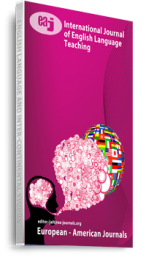Today, Englishes is concerned with the expansion of English around the world and with its development into distinctive first, second and foreign language varieties, these having been subject to different classifications and models of analysis. In most universities in Vietnam English is the compulsory subject and the requirement set for English level among graduate students is getting more demanding. The reason is policy makers and curriculum designers are oriented by international exams to modify their English programs. Hence, students are required to produce free writing as well as achieve an adequate reading ability and some other skills. Nonetheless, many of them cannot cope with the program as they encounter difficulties both objective and subjective. This paper examines possible subjective and objective hindrances among Vietnamese students as well as Asian students, the goals they should hit in today era and solutions to tackle with the problem. Here it proposes the use of culture-based approach and cognitive perspective to pinpoint Asian thinking and its influence on English performance and to find an answer to improving students’ skills with detailed analysis on activities to be implemented in English classes. More importantly, the paper also gives implications for curriculum designers in order to make teachers, learners and topic learning into consideration as it is a significant factor in determining quantity, quality, and nature of classroom interaction. The aim of this paper is to raise stakeholders’ awareness of TESOL professionals about the cultural issues related to language education and to provoke further research, thought, and discussion about ways in which theories and practices can be applied in ESL/EFL teaching situations.
Keywords: Asian Students, Cognitive Perspective, Culture-Based Approach, Reading skills, writing

